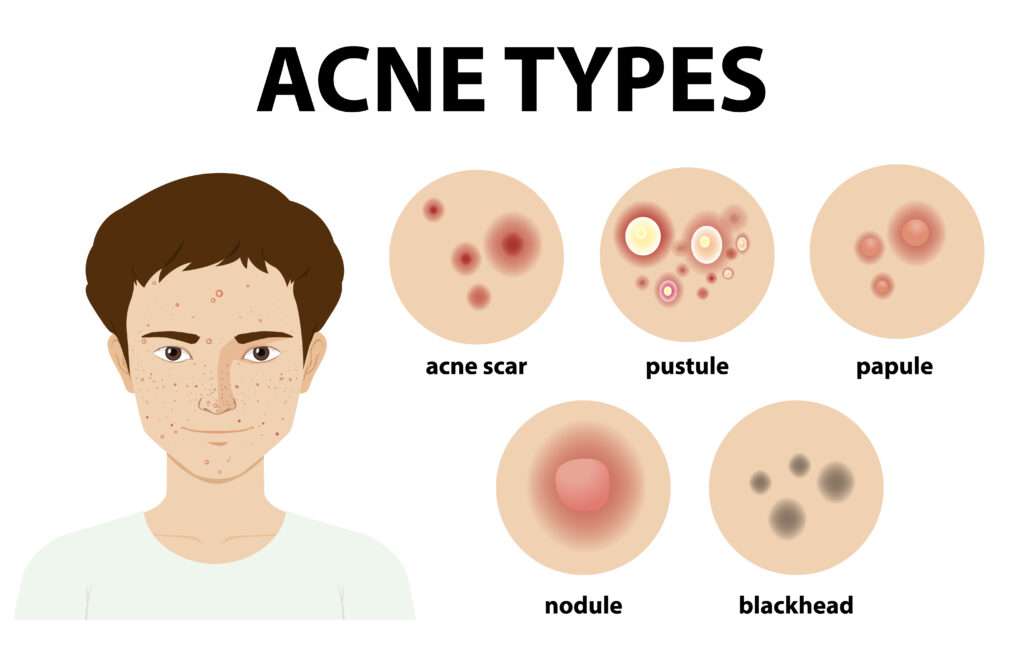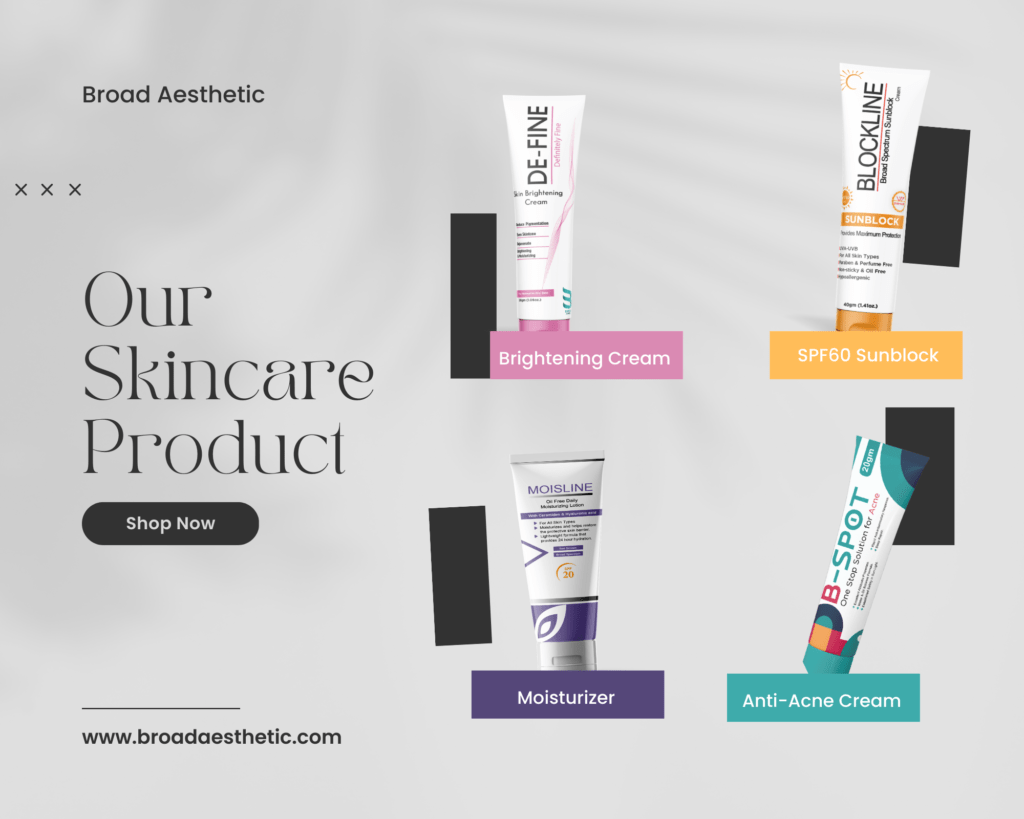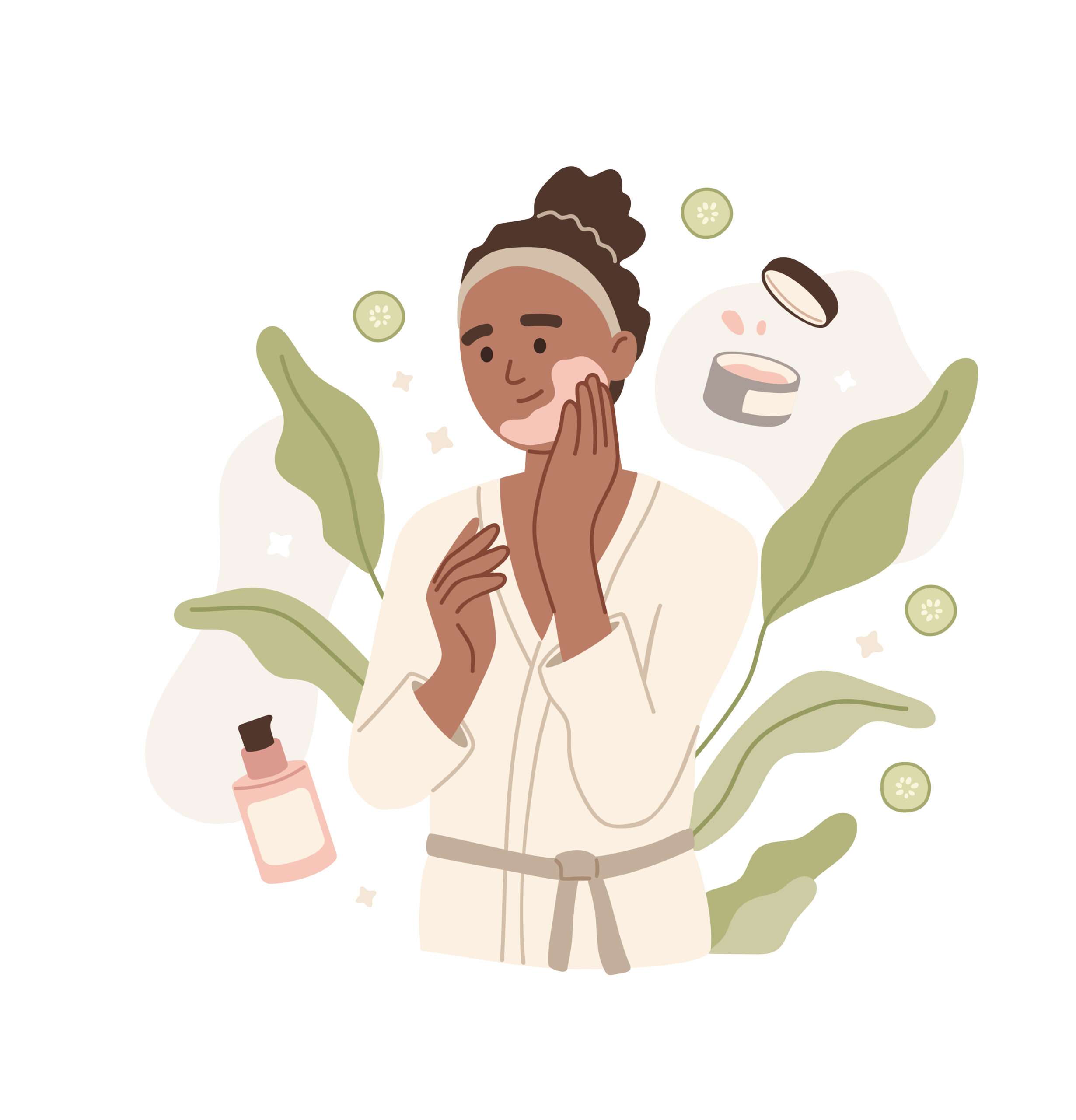Acne is a common skin condition that affects millions of people worldwide, including in Pakistan. Prevalence of acne in the world is around 9.4%. It is caused by a variety of factors, including excess sebum production, clogged pores, and inflammation. While acne is not usually a serious medical condition, it can be a source of significant distress for those who suffer from it, especially when it occurs on the face or other visible areas of the body. Fortunately, there are many effective treatments and remedies available for acne.
Is that acne outbreak on your face is shattering your confidence? Try this
Establish a Skincare Routine:
The first step in treating acne is to establish a consistent skincare routine. This should include gentle cleansing with a mild, non-comedogenic cleanser to remove dirt and excess oil from the skin. Over-washing can actually worsen acne, so it is important not to overdo it. Next, a non-comedogenic moisturizer should be applied to keep the skin hydrated without clogging pores.

Check the product ingredients before using for Acne:
One of the most effective treatments for acne is topical medications that contain ingredients like benzoyl peroxide, salicylic acid, or retinoids. These medications work by reducing inflammation, killing bacteria, and unclogging pores. Benzoyl peroxide is particularly effective at killing acne-causing bacteria, but it can also cause dryness and irritation, so it should be used sparingly at first. Zinc oxide and Niacinamide are also effective treatment choice.Another treatment option for acne is oral medications like antibiotics, hormonal birth control pills, or isotretinoin. Antibiotics work by killing the bacteria that cause acne, while birth control pills regulate hormones that can contribute to acne in women. Isotretinoin is a powerful medication that is reserved for severe cases of acne and can have serious side effects, so it should only be used under the guidance of a dermatologist.
Your Hormones can be responsible:
Hormones are chemical messengers in the body that regulate many different processes, including the production of sebum, the oily substance that can clog pores and lead to acne. When hormone levels fluctuate, such as during puberty, menstruation, pregnancy, or menopause, it can cause an increase in sebum production, which can lead to acne.
In women, hormonal acne is most commonly associated with an imbalance of androgens, which are male hormones that are also present in women in smaller amounts. Androgens stimulate the production of sebum, and when their levels are elevated, it can cause an increase in sebum production and lead to acne.
Other hormonal imbalances, such as those associated with thyroid disorders or polycystic ovary syndrome (PCOS), can also contribute to the development of acne. In these cases, the hormonal imbalances affect the body’s overall hormone levels, which can impact sebum production and contribute to acne.
Treatment options for hormonal acne may include topical or oral medications that regulate hormone levels, such as birth control pills or spironolactone. These medications can help to reduce androgens and other hormones that contribute to acne and improve the appearance of the skin.
Choose Something Natural :
In addition to these medical treatments, there are also many natural remedies that can be effective in treating acne. Tea tree oil, for example, has antibacterial and anti-inflammatory properties that can reduce acne lesions. It can be applied directly to the skin using a cotton swab, but it should be diluted with a carrier oil to avoid irritation.
Other natural remedies for acne include aloe vera, honey, and green tea. Aloe vera has anti-inflammatory properties that can reduce redness and swelling associated with acne, while honey has antibacterial properties that can kill acne-causing bacteria. Green tea is rich in antioxidants that can reduce inflammation and improve overall skin health. Horse chest nut is also one herbs that is proved to be having anti-inflammatory properties. Horse chestnut act as an anti bacterial also work like wonder in reducing inflammation.
Change the Lifestyle :
In addition to these treatments and remedies, there are also many lifestyle changes that can be made to improve acne. For example, diet can play a role in acne, so it is important to eat a healthy, balanced diet that is rich in fruits and vegetables and low in processed foods and sugars. Regular exercise can also help to reduce stress, which can contribute to acne. Less sleep also contributes in the aggravation of the acne.
Stress can trigger acne flare-ups by increasing hormone levels. Practicing stress management techniques such as meditation, yoga, or deep breathing can help manage stress and improve acne.
In addition to medical treatments, lifestyle changes can also be beneficial for managing hormonal acne. Eating a balanced diet, getting regular exercise, and managing stress can all help to regulate hormone levels and improve the health of the skin.
It is important to consult with a dermatologist or healthcare provider if you suspect that your acne is related to hormonal imbalances. They can help to diagnose the underlying cause of your acne and develop a treatment plan that is tailored to your individual needs. With the right treatment and self-care practices, it is possible to effectively manage hormonal acne and achieve clear, healthy skin.



